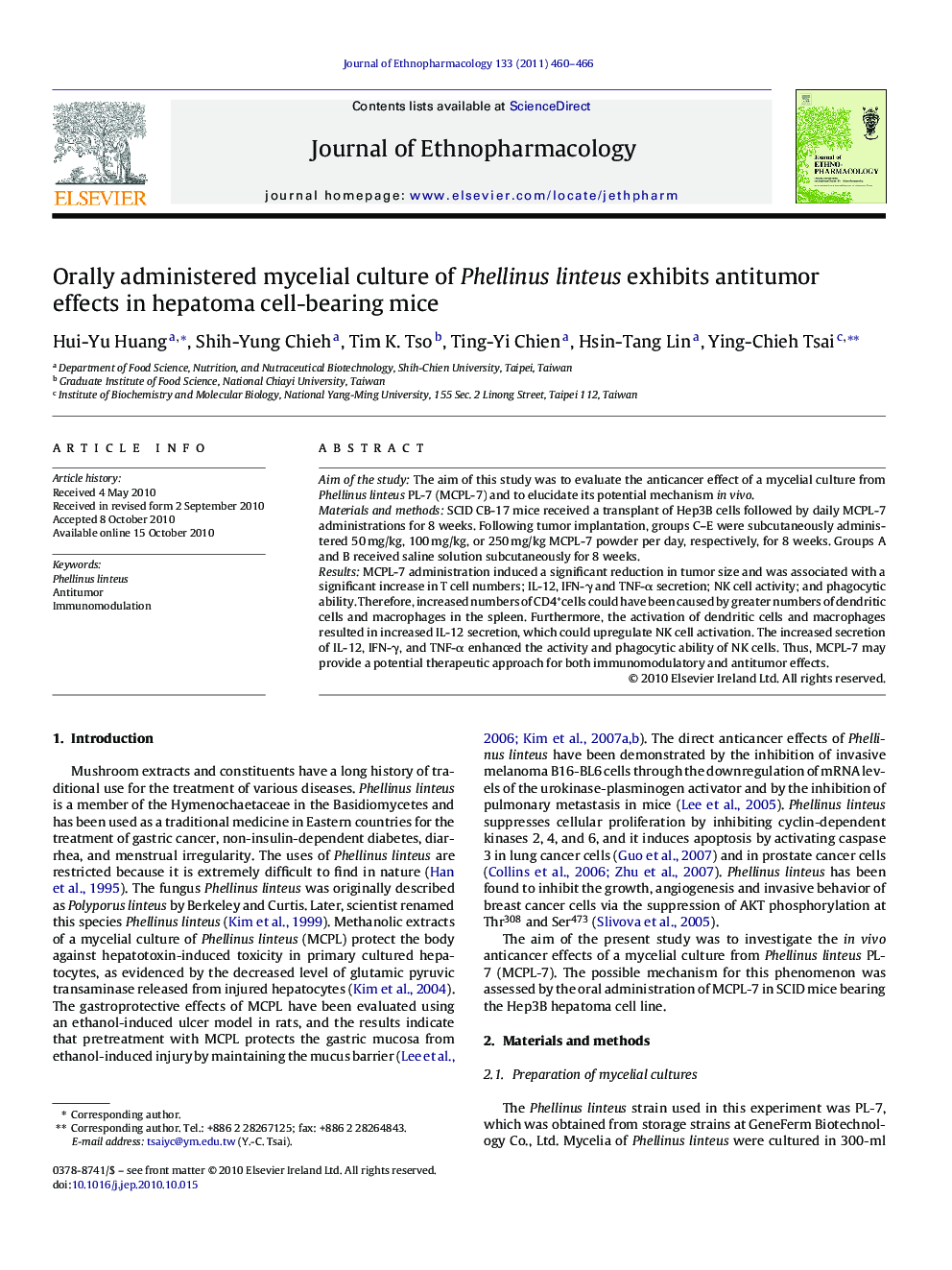| Article ID | Journal | Published Year | Pages | File Type |
|---|---|---|---|---|
| 5839972 | Journal of Ethnopharmacology | 2011 | 7 Pages |
Aim of the studyThe aim of this study was to evaluate the anticancer effect of a mycelial culture from Phellinus linteus PL-7 (MCPL-7) and to elucidate its potential mechanism in vivo.Materials and methodsSCID CB-17 mice received a transplant of Hep3B cells followed by daily MCPL-7 administrations for 8 weeks. Following tumor implantation, groups C-E were subcutaneously administered 50 mg/kg, 100 mg/kg, or 250 mg/kg MCPL-7 powder per day, respectively, for 8 weeks. Groups A and B received saline solution subcutaneously for 8 weeks.ResultsMCPL-7 administration induced a significant reduction in tumor size and was associated with a significant increase in T cell numbers; IL-12, IFN-γ and TNF-α secretion; NK cell activity; and phagocytic ability. Therefore, increased numbers of CD4+cells could have been caused by greater numbers of dendritic cells and macrophages in the spleen. Furthermore, the activation of dendritic cells and macrophages resulted in increased IL-12 secretion, which could upregulate NK cell activation. The increased secretion of IL-12, IFN-γ, and TNF-α enhanced the activity and phagocytic ability of NK cells. Thus, MCPL-7 may provide a potential therapeutic approach for both immunomodulatory and antitumor effects.
Graphical abstractDownload high-res image (139KB)Download full-size image
